Sunday, March 15, 2015 |
| 18:30 -20:00 |
Dinner Hosted by YI Gang, Deputy Governor, People’s Bank of China
 Dr. YI Gang, is the administrator of the State Administration of Foreign Exchange and a deputy governor of the People’s Bank of China. Dr. YI Gang, is the administrator of the State Administration of Foreign Exchange and a deputy governor of the People’s Bank of China.
Dr. YI received his Ph.D. in Economics from University of Illinois in 1986 and taught at Indiana University from 1986 to 1994. He co-founded the China Center for Economic Research (CCER) at Peking University in 1994 and has been a professor at CCER since then.
Dr. YI joined the People’s Bank of China in 1997 and has held a number of senior positions, including Secretary-General of the Monetary Policy Committee and Director-General of the Monetary Policy Department. He became a deputy governor of the People’s Bank of China in December 2007 and was appointed the Administrator of the State Administration of Foreign Exchange in July 2009.
His research interests include money, banking and the Chinese economy.
Location: 2nd Floor, Temple of Heaven 1, Ritz Carlton Financial Street
|
Monday, March 16, 2015 |
9:00 - 9:15 |
Opening Remarks
Markus Rodlauer, Deputy Director, Asia and Pacific Department, IMF
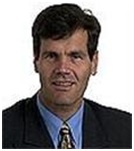 Markus Rodlauer is Deputy Director of the IMF’s Asia and Pacific Department. He was head of the team that prepared the 2012 Article IV Consultation for the People’s Republic of China. His previous operational responsibilities include being Deputy Director in the Western Hemisphere Department, Assistant Director in the Asian Department, and IMF Representative to Poland and the Philippines. Dr. Rodlauer worked with the Ministry of Foreign Affair of Austria before joining the IMF. His academic training includes various degrees in economics and international relations and a Doctor of Law from the University of Innsbruck. Markus Rodlauer is Deputy Director of the IMF’s Asia and Pacific Department. He was head of the team that prepared the 2012 Article IV Consultation for the People’s Republic of China. His previous operational responsibilities include being Deputy Director in the Western Hemisphere Department, Assistant Director in the Asian Department, and IMF Representative to Poland and the Philippines. Dr. Rodlauer worked with the Ministry of Foreign Affair of Austria before joining the IMF. His academic training includes various degrees in economics and international relations and a Doctor of Law from the University of Innsbruck.
|
9:15 - 10:45 |
Session I: China’s Financial/External Sector Reforms and RMB Internationalization
China’s financial and external sector reforms will not only lead to a better allocation of resources, but facilitate the internationalization of the RMB and ultimately the inclusion of the RMB in the SDR basket. This session will take stock of how China’s RMB internationalization has advanced over the past couple of years and discuss further reform options.
Moderator:
Alfred Schipke, Senior Resident Representative, IMF
 Alfred Schipke is the IMF Senior Resident Representative for China. Previously, he was a division chief in the Asia and Pacific Department, where he coordinated the work on fast growing low income countries in South-East Asia (Frontier Economies) and led missions to Vietnam. He was a division chief in the IMF’s Western Hemisphere Department in charge of the Latin Caribbean and Eastern Caribbean Currency Union (ECCU) divisions. Among others, he negotiated a high access Stand-by Arrangement, which included a debt restructuring and a debt-equity swap for one of the countries in the ECCU, as well as an $800 million precautionary Stand-By Arrangement for El Salvador. Also, he was the Regional Resident Representative for Central America, Panama, and the Dominican Republic and worked in the IMF European Department. He teaches international trade and finance at Harvard University, John F. Kennedy School of Government and has authored and edited a number of books and articles, including a recently published handbook on the ECCU. His research has focused on economic integration and the linkages between macroeconomics and finance. Alfred Schipke is the IMF Senior Resident Representative for China. Previously, he was a division chief in the Asia and Pacific Department, where he coordinated the work on fast growing low income countries in South-East Asia (Frontier Economies) and led missions to Vietnam. He was a division chief in the IMF’s Western Hemisphere Department in charge of the Latin Caribbean and Eastern Caribbean Currency Union (ECCU) divisions. Among others, he negotiated a high access Stand-by Arrangement, which included a debt restructuring and a debt-equity swap for one of the countries in the ECCU, as well as an $800 million precautionary Stand-By Arrangement for El Salvador. Also, he was the Regional Resident Representative for Central America, Panama, and the Dominican Republic and worked in the IMF European Department. He teaches international trade and finance at Harvard University, John F. Kennedy School of Government and has authored and edited a number of books and articles, including a recently published handbook on the ECCU. His research has focused on economic integration and the linkages between macroeconomics and finance.
Speakers:
Li Bo, Director General, Monetary Policy Department II, People's Bank of China
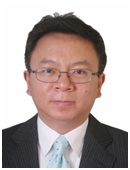 Mr. Li joined the PBOC in 2004, working in the Legal and Regulation Department before joining the Monetary Policy Department II in 2009. Prior to joining the PBOC, Mr Li was a practicing attorney with the New York law firm of Davis Polk & Wardwell. Mr. Li holds a Ph.D. degree in economics from Stanford University and a J.D. magna cum laude from Harvard Law School. He is a member of the Chinese and New York Bar. Mr. Li joined the PBOC in 2004, working in the Legal and Regulation Department before joining the Monetary Policy Department II in 2009. Prior to joining the PBOC, Mr Li was a practicing attorney with the New York law firm of Davis Polk & Wardwell. Mr. Li holds a Ph.D. degree in economics from Stanford University and a J.D. magna cum laude from Harvard Law School. He is a member of the Chinese and New York Bar.
Eswar Prasad, Professor of Economics, Cornell University and Brookings Institution
 Eswar Prasad is the Tolani Senior Professor of Trade Policy at Cornell University. He is also a Senior Fellow at the Brookings Institution, where he holds the New Century Chair in International Economics, and a Research Associate at the National Bureau of Economic Research. He was previously chief of the Financial Studies Division in the International Monetary Fund's Research Department and, before that, was the head of the IMF's China Division Eswar Prasad is the Tolani Senior Professor of Trade Policy at Cornell University. He is also a Senior Fellow at the Brookings Institution, where he holds the New Century Chair in International Economics, and a Research Associate at the National Bureau of Economic Research. He was previously chief of the Financial Studies Division in the International Monetary Fund's Research Department and, before that, was the head of the IMF's China Division
Eswar Prasad's latest book is The Dollar Trap: How the U.S. Dollar Tightened Its Grip on Global Finance (Princeton University Press, February 2014). His previous book, Emerging Markets: Resilience and Growth Amid Global Turmoil, was published in December 2010 (with M. Ayhan Kose; Brookings Institution Press). Prasad has testified before the Senate Finance Committee, the House of Representatives Committee on Financial Services and the U.S.-China Economic and Security Review Commission. He was a member of the analytical team that drafted the 2008 report of the High-Level Committee on Financial Sector Reforms set up by the Government of India. He serves on an Advisory Committee to India's Finance Minister and is the Lead Academic for the DFID-LSE International Growth Center's India Growth Research Program. He is the creator of the Brookings-Financial Times world index (TIGER: Tracking Indices for the Global Economic Recovery; www.ft.com/tiger).
PHUANG Haizhou, Managing Director, China International Capital Corporation Limited
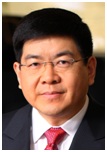 Dr. HUANG Haizhou is a Managing Director and Member of the Executive Committee at the China International Capital Corporation (CICC). He joined CICC in 2007, and had served as Co-Head of Sales and Trading Department and Executive Chairman of Capital Market Committee; and Chief Strategist, Co-Head of Research Department and firm-wide Executive Chairman of Research Coordination Committee. Dr. HUANG Haizhou is a Managing Director and Member of the Executive Committee at the China International Capital Corporation (CICC). He joined CICC in 2007, and had served as Co-Head of Sales and Trading Department and Executive Chairman of Capital Market Committee; and Chief Strategist, Co-Head of Research Department and firm-wide Executive Chairman of Research Coordination Committee.
He has over twenty-year experiences in serving clients in the financial industry and governments, as well as conducting research at market, policy and academic institutions. He was head of Greater China research at Barclays Capital from 2005 to 2007. From 1998 to 2005, he was a senior economist at the International Monetary Fund (IMF), and before that taught at the Chinese University of Hong Kong and the London School of Economics (LSE).
Mr. Huang holds a Ph.D degree in business from Indiana University, USA, and a master and bachelor degrees, both in engineering, from China. He has over twenty publications in leading academic and policy journals, including American Economic Review, China Economic Review, European Economic Review, Journal of Banking and Finance, Journal of International Economics, Journal of Monetary Economics, Oxford Economic Papers, etc.
He is a Vice President of the China Society of World Economics, an Academic Council Member of the China Finance 40 Group (CF40), a Member of Expert Committee of China’s Thirteenth Five-year Plan, a Member of the Hong Kong Financial Services Development Council, and a Member of the Global Agenda Council of the World Economic Forum.
MK Tang, Executive Director, Global Investment Research Asia, Goldman Sachs
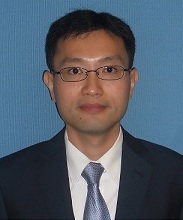 MK Tang is senior China economist, based in Hong Kong, at Goldman Sachs. Before he joined the firm in 2012, he worked in the Hong Kong Monetary Authority research department as senior manager. And prior to that, MK was an economist at the IMF for six years, first in the research department and then at country desks covering several economies including the Euro area, UK and Mexico. He has a Ph.D. in economics from Harvard University, and BSc from the Hong Kong University of Science and Technology. MK Tang is senior China economist, based in Hong Kong, at Goldman Sachs. Before he joined the firm in 2012, he worked in the Hong Kong Monetary Authority research department as senior manager. And prior to that, MK was an economist at the IMF for six years, first in the research department and then at country desks covering several economies including the Euro area, UK and Mexico. He has a Ph.D. in economics from Harvard University, and BSc from the Hong Kong University of Science and Technology.
|
10:45 - 11:00 |
Coffee Break |
11:00-12:30 |
Session II: Opening Up of the Financial Services Sector
China’s financial services sector has the potential to significantly contribute to the country’s future economic growth, facilitate the rebalancing of the economy, and improve people’s access to financial services. As both advanced and emerging economies shows this calls for an opening of the sector to both domestic and foreign competition in the context of a strong regulatory frameworks.
Moderator:
Steve Barnett, Division Chief, Asia and Pacific Department, IMF
 Steven Alan Barnett is a Division Chief in the Asia and Pacific Department of the International Monetary Fund (IMF). He has spent the better part of the last 10 years covering Asia, including serving as Assistant Director at the IMF Office for Asia and the Pacific in Tokyo, Resident Representative to China, and Resident Representative to Thailand. Prior to joining the IMF in 1997, he earned his PhD in economics from the University of Maryland. He has a Bachelor's degree in economics from Stanford University as well as a Master's degree in Russian and East European Studies, also from Stanford. Steven Alan Barnett is a Division Chief in the Asia and Pacific Department of the International Monetary Fund (IMF). He has spent the better part of the last 10 years covering Asia, including serving as Assistant Director at the IMF Office for Asia and the Pacific in Tokyo, Resident Representative to China, and Resident Representative to Thailand. Prior to joining the IMF in 1997, he earned his PhD in economics from the University of Maryland. He has a Bachelor's degree in economics from Stanford University as well as a Master's degree in Russian and East European Studies, also from Stanford.
Speakers:
ZHU Jun, DDirector-General, International Department, People’s Bank of China
 Ms. Zhu Jun joined the People’s Bank of China in 1993 and has held a variety of positions since then. After working in the Governor’s Office, Ms. Zhu joined the International Department in 1997, first in the BIS Division and then in the Research Division. In 2006, she took the position of the Director of the Research Division, and the Deputy Director-General of the International Department in 2009. She was appointed as the Director-General of the International Department in 2015. Ms. Zhu Jun joined the People’s Bank of China in 1993 and has held a variety of positions since then. After working in the Governor’s Office, Ms. Zhu joined the International Department in 1997, first in the BIS Division and then in the Research Division. In 2006, she took the position of the Director of the Research Division, and the Deputy Director-General of the International Department in 2009. She was appointed as the Director-General of the International Department in 2015.
She worked in the BIS as a secondee from March to October 1999. In September 2003, she returned to the BIS and worked as an Economist until December 2005.
Ms. Zhu graduated from Peking University with a Bachelor’s degree in Economics in 1989, and received her Master’s degree in Economics in Peking University in 1993.
Philip Lowe, Deputy Governor, Reserve Bank of Australia
 Philip Lowe is the Deputy Governor of the Reserve Bank of Australia, a position he has held since February 2012. He is also Deputy Chairman of the Reserve Bank Board, and is Chairman of the Reserve Bank's Risk Management Committee. Philip Lowe is the Deputy Governor of the Reserve Bank of Australia, a position he has held since February 2012. He is also Deputy Chairman of the Reserve Bank Board, and is Chairman of the Reserve Bank's Risk Management Committee.
Prior to his current role, Philip has held the positions of Assistant Governor (Economic) and Assistant Governor (Financial System). He also spent two years with the Bank for International Settlements working on financial stability issues.
Philip holds a PhD from the Massachusetts Institute of Technology and a B.Comm (Honours) in Economics/Econometrics from the University of New South Wales. He has authored numerous papers including on the linkages between monetary policy and financial stability.
Dongchul Cho, Professor and Chief Economist, Korea Development Institute
 Dongchul Cho is chief economist at the Korea Development Institute (KDI) and professor at the KDI School of Public Policy and Management. He is also serving as a member of National Economic Advisory Council to the President. Dongchul Cho is chief economist at the Korea Development Institute (KDI) and professor at the KDI School of Public Policy and Management. He is also serving as a member of National Economic Advisory Council to the President.
Tarisa Watanagase, Former Governor, Central Bank of Thailand
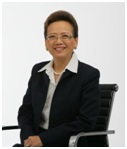 Tarisa Watanagase joined the Bank of Thailand in 1975 and was Governor between 2006 -2010. Her long career at the Bank included responsibilities in economic research, money market operation, payment systems, banking sector policy and supervision, and monetary policy. She also worked as an economist at the International Monetary Fund, Washington D.C. between 1978-1990 and an IMF-World Bank FSAP independent assessor in 2002. Tarisa Watanagase joined the Bank of Thailand in 1975 and was Governor between 2006 -2010. Her long career at the Bank included responsibilities in economic research, money market operation, payment systems, banking sector policy and supervision, and monetary policy. She also worked as an economist at the International Monetary Fund, Washington D.C. between 1978-1990 and an IMF-World Bank FSAP independent assessor in 2002.
She was instrumental in the 1997 Thai crisis resolution and the ensuing supervisory and financial sector reforms, the establishment of the Thai Real-Time-Gross-Settlement (RTGS) system in 1995, the first in Asia, to eliminate settlement risk in high-value fund transfers, and the passage of the new BOT Act in 2008, which guarantees the central bank’s independence. Currently, Dr. Watanagase speaks extensively on central banking and financial sector issues and is a member of the board/advisor to several public and private organizations, both domestic and international.
|
12:30-14:00 |
Lunch
Monetary Policy and Financial Stability
Keynote speaker: Lars E.O. Svensson, Former Deputy Governor of the Sveriges Riksbank
 Professor Lars E.O. Svensson is Resident Scholar at the Research Department, IMF, during 2015. He is Visiting Professor at the Stockholm School of Economics since May 2013. He was Deputy Governor of Sveriges Riksbank (the central bank of Sweden) during May 2007–May 2013, Professor of Economics at Princeton University during 2001-2009, and Professor of International Economics at the Institute for International Economic Studies, Stockholm University during 1984–2003. He received his Ph.D. in economics from Stockholm University. Professor Lars E.O. Svensson is Resident Scholar at the Research Department, IMF, during 2015. He is Visiting Professor at the Stockholm School of Economics since May 2013. He was Deputy Governor of Sveriges Riksbank (the central bank of Sweden) during May 2007–May 2013, Professor of Economics at Princeton University during 2001-2009, and Professor of International Economics at the Institute for International Economic Studies, Stockholm University during 1984–2003. He received his Ph.D. in economics from Stockholm University.
He received the Great Gold Medal of the Royal Swedish Academy of Engineering Sciences in 2012. He is a foreign honorary member of the American Economic Association, a member of the Royal Swedish Academy of Sciences, a member of Academia Europaea, a foreign member of the Finnish Academy of Science and Letters, a foreign honorary member of the American Academy of Arts and Sciences, an honorary member of the Latin American and Caribbean Economic Association, a fellow of the Econometric Society, a fellow of the European Economic Association, a research associate of the National Bureau of Economic Research, and a research fellow of the Centre for Economic Policy Research, London. He was chair of the Prize Committee for the Alfred Nobel Memorial Prize in Economic Sciences during 1999–2001, member during 1993–2002, and secretary during 1988–1992.
He was active as advisor to Sveriges Riksbank during 1990–2007 and was a member of the Monetary Policy Advisory Board and the Economic Advisory Panel of the Federal Reserve Bank of New York from 2004 until his appointment as Deputy Governor of the Riksbank. He has regularly consulted for international, U.S., and Swedish agencies and organizations. In 2000–2001 he undertook a review of monetary policy in New Zealand, commissioned by the New Zealand government, and in 2002 he chaired a committee reviewing monetary policy in Norway.
|
14:00-15:30 |
Session III: Interest Rate Liberalization, Shadow Banking, and Monetary Transmission Mechanism
Financial liberalization and innovation can have substantial effects on the monetary transmission mechanism as well as the efficiency of capital markets, and such developments may also pose significant challenges for the conduct of monetary policy. These issues are clearly relevant for China in the context of ongoing financial reforms and the use of interest rates as the primary tool of monetary policy. This session will take stock of China’s monetary transmission mechanism, identify potential impediments (including the role of shadow banking) and discuss reform options in light of the international experience.
Moderator:
SUN Guofeng, Deputy Director General, Monetary Policy Department, People’s Bank of China
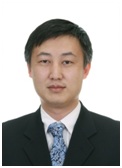 SUN Guofeng, Deputy Director General, Monetary Policy Department, the People’s Bank of China SUN Guofeng, Deputy Director General, Monetary Policy Department, the People’s Bank of China
Sun Guogeng graduated from the Graduate School of the People's Bank of China in 1996, before joining PBC’s Planning and Central Bank Lending Department in the same year. He then worked in the Bank’s Monetary Policy Department, where he served as Deputy Director of Open Market Operations and subsequently Director of Foreign Exchange Transactions. Mr. Sun has held the office of Deputy Director General of the Monetary Policy Department since 2010, primarily engaged in the establishment of the inter-bank bond market, the development of China's money market, the launching of open market operations, and the reform of the RMB exchange rate regime. During 2003-2004, he was invited to do research as a visiting scholar at Stanford University. Mr. Sun is currently a part-time professor at the University of International Business and Economics of China and a distinguished member of the China Finance 40 forum.
Sun Guofeng has for many years studied topics such as credit money theory, central bank monetary policy, RMB exchange rate, the bond market, the money market and international financial markets. He is the author of more than 60 papers and 2 books, and has been a guest speaker at various colleges and research institutions including Stanford University, University of California, Berkeley, the Bank for International Settlements, China Center for Economic Research at Peking University, and China Society for Finance and Banking.
Speakers:
MA Jun, Chief Economist, Research Bureau, People’s Bank of China
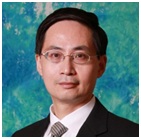 Dr. MA Jun is Chief Economist at the People’s Bank of China (PBC)’s Research Bureau. Before joining the PBC in 2014, he worked for 13 years at Deutsche Bank, where he was Managing Director, Chief Economist for Greater China, and Head of China and Hong Kong Strategy. Prior to joining Deutsche Bank in 2000, he worked as public policy specialist, economist and senior economist at the International Monetary Fund and World Bank from 1992-2000. From 1988-1990, he was a research fellow at the Development Research Center of China's State Council. Dr. MA Jun is Chief Economist at the People’s Bank of China (PBC)’s Research Bureau. Before joining the PBC in 2014, he worked for 13 years at Deutsche Bank, where he was Managing Director, Chief Economist for Greater China, and Head of China and Hong Kong Strategy. Prior to joining Deutsche Bank in 2000, he worked as public policy specialist, economist and senior economist at the International Monetary Fund and World Bank from 1992-2000. From 1988-1990, he was a research fellow at the Development Research Center of China's State Council.
Dr. Ma has published nine books and several hundred articles on the Chinese economy, global economy, and financial markets. His main research interests include macroeconomic forecasting and policies, RMB internationalization and capital account liberalization, structural reforms, as well as environmental economics. Dr. Ma has been frequently rated at the top in his fields by various investor polls. His accolades include the No.1 Asia economist and the No.1 China analyst in Institutional Investor’s survey for four years in a row (2009-2012), as well as many No. 1 rankings in China economics and China strategy research by Asiamoney, Thomson Reuters, and Sohu Finance.
Dr. Ma received his Ph.D. in Economics from Georgetown University in 1994, and his master's degree in Management Science from Fudan University in 1988. He is a member of China Finance-40 Forum, member of the academic committee of International Finance Forum, member of World Economic Forum’s Agenda Council on International Monetary System, and Adjunct Professor at Fudan University.
Simon Gray, Lead Financial Sector Expert, Monetary and Capital Markets Department, IMF
 Simon Gray is Lead Financial Sector Expert in the Monetary and Capital Markets Department. Prior to joining the IMF in 2007 he spent 27 years at the Bank of England. Over the past 15 years he has worked extensively with central banks around the world, specializing in the field of monetary operations, liquidity management and market development, and has published extensively on these topics. He participated in the FSAP missions for the USA (2010 and 2015), India, Malaysia, Canada and Moldova, investigating in particular systemic liquidity and financial sector safety net issues. He has also worked in the fields of banking supervision, and payment and settlement systems. Simon Gray is Lead Financial Sector Expert in the Monetary and Capital Markets Department. Prior to joining the IMF in 2007 he spent 27 years at the Bank of England. Over the past 15 years he has worked extensively with central banks around the world, specializing in the field of monetary operations, liquidity management and market development, and has published extensively on these topics. He participated in the FSAP missions for the USA (2010 and 2015), India, Malaysia, Canada and Moldova, investigating in particular systemic liquidity and financial sector safety net issues. He has also worked in the fields of banking supervision, and payment and settlement systems.
Andrew Levin, Professor, Dartmouth College and former Federal Reserve Special Advisor
 Andrew Levin is currently an adviser in the research department at the International Monetary Fund; as of July 2015 he will be a professor of economics at Dartmouth College. Dr. Levin received his Ph.D. in economics from Stanford University in 1989. He was a staff member at the U.S. Federal Reserve Board from 1992 to 2012, including two years serving as a special adviser to Chairman Bernanke and Vice Chair Yellen on monetary policy strategy and communications. Dr. Levin has also had extensive interactions with many other central banks: He served as a consultant to the European Central Bank’s inflation persistence network and to the Bank of Canada’s external review of research, he was a co-editor of the International Journal of Central Banking, he has been a visiting scholar at the Bank of Japan and the Dutch National Bank, and he has provided technical assistance to the national banks of Albania, Macedonia, and most recently, to the Bank of Ghana. Dr. Levin’s own research has been published in leading economic journals, including the American Economic Review, the Journal of the European Economic Association, the Journal of Monetary Economics, and the Journal of Econometrics. Andrew Levin is currently an adviser in the research department at the International Monetary Fund; as of July 2015 he will be a professor of economics at Dartmouth College. Dr. Levin received his Ph.D. in economics from Stanford University in 1989. He was a staff member at the U.S. Federal Reserve Board from 1992 to 2012, including two years serving as a special adviser to Chairman Bernanke and Vice Chair Yellen on monetary policy strategy and communications. Dr. Levin has also had extensive interactions with many other central banks: He served as a consultant to the European Central Bank’s inflation persistence network and to the Bank of Canada’s external review of research, he was a co-editor of the International Journal of Central Banking, he has been a visiting scholar at the Bank of Japan and the Dutch National Bank, and he has provided technical assistance to the national banks of Albania, Macedonia, and most recently, to the Bank of Ghana. Dr. Levin’s own research has been published in leading economic journals, including the American Economic Review, the Journal of the European Economic Association, the Journal of Monetary Economics, and the Journal of Econometrics.
Ting Lu, China Economist, Bank of America-Merrill Lynch, Hong Kong
 Ting Lu is managing director and Head of Greater China Economics at BofA Merrill Lynch Global Research. He is based in Hong Kong. Ting Lu is managing director and Head of Greater China Economics at BofA Merrill Lynch Global Research. He is based in Hong Kong.
Prior to joining Merrill Lynch in 2006, Ting studied economics at the University of California at Berkeley and has worked as a consultant at the research department at the World Bank and the East Asia and Pacific Department at International Finance Corporation. He was ranked No. 1 China economist by Bloomberg in 2010-11, No. 1 forecaster of “Vision Cup China macroeconomic forecasting” by the Capital Weekly in China in 2012, No. 1 in Economics in All-Asia Institutional Investor Surveys in 2013 and 2014, No. 1 in Economics in All-China Institutional Investor Surveys in 2013, and No. 1 in Economics in Asiamoney 2013 survey.
Ting received Ph.D. in economics from the University of California at Berkeley and Bachelor’s and Master’s degrees in economics from Peking University, China. He is also a CFA Charterholder.
|
15:30-15:45 |
Coffee Break
|
15:45-17:15 |
Session IV: Macroprudential Policy Coordination: International Experience
Financial innovations, a rapidly changing financial system, and the surge in nonbank activities bring benefits to both investors and savers. At the same time, they call for constant upgrading of policy and regulatory frameworks and require effective coordination among regulatory agencies. Given the current diverse set of institutional arrangements that exist globally, this session will indentify key principles to safeguard financial sector stability that could be useful for China.
Moderator:
MA Jun, Chief Economist, Research Bureau, People’s Bank of China
 Dr. MA Jun is Chief Economist at the People’s Bank of China (PBC)’s Research Bureau. Before joining the PBC in 2014, he worked for 13 years at Deutsche Bank, where he was Managing Director, Chief Economist for Greater China, and Head of China and Hong Kong Strategy. Prior to joining Deutsche Bank in 2000, he worked as public policy specialist, economist and senior economist at the International Monetary Fund and World Bank from 1992-2000. From 1988-1990, he was a research fellow at the Development Research Center of China's State Council. Dr. MA Jun is Chief Economist at the People’s Bank of China (PBC)’s Research Bureau. Before joining the PBC in 2014, he worked for 13 years at Deutsche Bank, where he was Managing Director, Chief Economist for Greater China, and Head of China and Hong Kong Strategy. Prior to joining Deutsche Bank in 2000, he worked as public policy specialist, economist and senior economist at the International Monetary Fund and World Bank from 1992-2000. From 1988-1990, he was a research fellow at the Development Research Center of China's State Council.
Dr. Ma has published nine books and several hundred articles on the Chinese economy, global economy, and financial markets. His main research interests include macroeconomic forecasting and policies, RMB internationalization and capital account liberalization, structural reforms, as well as environmental economics. Dr. Ma has been frequently rated at the top in his fields by various investor polls. His accolades include the No.1 Asia economist and the No.1 China analyst in Institutional Investor’s survey for four years in a row (2009-2012), as well as many No. 1 rankings in China economics and China strategy research by Asiamoney, Thomson Reuters, and Sohu Finance.
Dr. Ma received his Ph.D. in Economics from Georgetown University in 1994, and his master's degree in Management Science from Fudan University in 1988. He is a member of China Finance-40 Forum, member of the academic committee of International Finance Forum, member of World Economic Forum’s Agenda Council on International Monetary System, and Adjunct Professor at Fudan University.
Speakers:
Halim Alamsyah, Deputy Governor, Central Bank of Indonesia
 Halim Alamsyah became the Deputy Governor of Bank Indonesia since June 2010. In his current role he is in charge of Financial System Stability issues. He also represents Bank Indonesia as the ex-officio Commissioner of the Indonesia Financial Supervisory Authority (IFSA) since the latter was established in 2012. Prior to the transfer of the banking supervisory function to the IFSA, Mr. Alamsyah was the Deputy Governor in charge of Banking Supervision and Financial System Stability. Halim Alamsyah became the Deputy Governor of Bank Indonesia since June 2010. In his current role he is in charge of Financial System Stability issues. He also represents Bank Indonesia as the ex-officio Commissioner of the Indonesia Financial Supervisory Authority (IFSA) since the latter was established in 2012. Prior to the transfer of the banking supervisory function to the IFSA, Mr. Alamsyah was the Deputy Governor in charge of Banking Supervision and Financial System Stability.
He spent around 25 years of his career as an economic researcher dealing with macro-modeling & forecasting and monetary policy analysis. His dissertation was on Monetary Policy Framework in a Highly Persistent Inflation Environment Using Dynamic Stochastic General Equilibrium Models. During the last two years his research has been focused more on macro-prudential as well as micro-prudential in banking and financial policy analysis.
In recent days, he represents Indonesia and Bank Indonesia in international prominent forums. He is a member of the Financial Stability Board (FSB) Plenary and the Basel Committee on Banking Supervision (BCBS) Committee from Bank Indonesia since August 2012. He is also actively engaged in various regional cooperative forums/organizations. Currently he is the deputy co-chair of the Executives’ Meeting of East Asia Pacific Central Banks (EMEAP) Working Group on Banking Supervision and the co-chair of ASEAN Banking Integration Framework.
Margaret M. McConnell, Senior Vice President, Federal Reserve Bank of New York
 Margaret (Meg) McConnell is a Senior Vice President and Head of the Assessments Function in the Integrated Policy Analysis Group of the Federal Reserve Bank of New York. The Assessments Function identifies risks that could impact the Federal Reserve’s macroeconomic, macroprudential, and microprudential objectives, and considers policy options to mitigate those risks, including identification of near-term trade-offs across objectives. She was previously the Director of the Office of Financial Stability and Regulatory Policy (O-FSRP). Prior to the establishment of the O-FSRP in March 2011, Ms. McConnell served as the Deputy Chief of Staff for Policy in the Executive Office, a role she assumed in July 2007. Ms. McConnell joined the Federal Reserve Bank of New York as an economist in September 1996. She holds a B.S. from the University of Delaware and a Ph.D. in economics from The Ohio State University. Margaret (Meg) McConnell is a Senior Vice President and Head of the Assessments Function in the Integrated Policy Analysis Group of the Federal Reserve Bank of New York. The Assessments Function identifies risks that could impact the Federal Reserve’s macroeconomic, macroprudential, and microprudential objectives, and considers policy options to mitigate those risks, including identification of near-term trade-offs across objectives. She was previously the Director of the Office of Financial Stability and Regulatory Policy (O-FSRP). Prior to the establishment of the O-FSRP in March 2011, Ms. McConnell served as the Deputy Chief of Staff for Policy in the Executive Office, a role she assumed in July 2007. Ms. McConnell joined the Federal Reserve Bank of New York as an economist in September 1996. She holds a B.S. from the University of Delaware and a Ph.D. in economics from The Ohio State University.
Ratna Sahay, Deputy Director, Monetary and Capital Markets Department, IMF
 Ratna Sahay is Deputy Director of the Monetary and Capital Markets Department at the International Monetary Fund (IMF). She is responsible for setting strategic priorities for the department, leading key policy papers and projects, and coordinating the work and resource management of the department. She has previously worked in the Research, Finance, Asian, European, Middle East, and Western Hemisphere Departments at the IMF, leading key analytical and policy projects as well as several missions to emerging market countries. She has also led regional surveillance projects and missions in the Middle East and Western Hemisphere Departments. She has served as Advisor to Stanley Fischer (First Deputy Managing Director) and Michael Mussa and Kenneth Rogoff (both Economic Counselors of the IMF). She has published widely in leading journals on financial market spillovers and financial crises, inflation, economic growth, fiscal policy and debt sustainability, and transition economies. She has taught at Delhi University, Columbia University and New York University and holds a Ph. D in Economics from New York University, New York. Ratna Sahay is Deputy Director of the Monetary and Capital Markets Department at the International Monetary Fund (IMF). She is responsible for setting strategic priorities for the department, leading key policy papers and projects, and coordinating the work and resource management of the department. She has previously worked in the Research, Finance, Asian, European, Middle East, and Western Hemisphere Departments at the IMF, leading key analytical and policy projects as well as several missions to emerging market countries. She has also led regional surveillance projects and missions in the Middle East and Western Hemisphere Departments. She has served as Advisor to Stanley Fischer (First Deputy Managing Director) and Michael Mussa and Kenneth Rogoff (both Economic Counselors of the IMF). She has published widely in leading journals on financial market spillovers and financial crises, inflation, economic growth, fiscal policy and debt sustainability, and transition economies. She has taught at Delhi University, Columbia University and New York University and holds a Ph. D in Economics from New York University, New York.
HUANG Yiping,, Professor, Peking University
 HUANG Yiping is professor of economics and deputy dean at the National School of Development, Peking University. His research focuses mainly on macroeconomic policy, financial reform and international finance. He is the Rio Tinto Adjunct Professor in the Chinese Economy at the Australian National University, a member of the China Finance 40 Forum and a member of the Chinese Economists 50 Forum. He is also Editor of China Economic Journal and an Associate Editor of Asian Economic Policy Review. Previously, he was a policy analyst at the Research Center for Rural Development of the State Council, research fellow and senior lecturer of economics at the Australian National University, General Mills International Visiting Professor of Economics and Finance at the Columbia Business School, Managing Director and Chief Asia Economist for Citigroup, Chief Economist for Caixin Media Group, and Managing Director and Chief Economist for Emerging Asia for Barclays. He received his Bachelor of Agricultural Sciences (Agricultural Economics) from Zhejiang Agricultural University, Master of Economics from Renmin University of China and PhD in Economics from Australian National University. HUANG Yiping is professor of economics and deputy dean at the National School of Development, Peking University. His research focuses mainly on macroeconomic policy, financial reform and international finance. He is the Rio Tinto Adjunct Professor in the Chinese Economy at the Australian National University, a member of the China Finance 40 Forum and a member of the Chinese Economists 50 Forum. He is also Editor of China Economic Journal and an Associate Editor of Asian Economic Policy Review. Previously, he was a policy analyst at the Research Center for Rural Development of the State Council, research fellow and senior lecturer of economics at the Australian National University, General Mills International Visiting Professor of Economics and Finance at the Columbia Business School, Managing Director and Chief Asia Economist for Citigroup, Chief Economist for Caixin Media Group, and Managing Director and Chief Economist for Emerging Asia for Barclays. He received his Bachelor of Agricultural Sciences (Agricultural Economics) from Zhejiang Agricultural University, Master of Economics from Renmin University of China and PhD in Economics from Australian National University.
|
17:15-18:15 |
Session V: Concluding Roundtable
The panel discussion will draw on key insights from the day’s discussions. Panel members will summarize the main takeaways with a focus on potential lessons for China.
Moderator:
HUANG Yiping,, Professor, Peking University
 HUANG Yiping is professor of economics and deputy dean at the National School of Development, Peking University. His research focuses mainly on macroeconomic policy, financial reform and international finance. He is the Rio Tinto Adjunct Professor in the Chinese Economy at the Australian National University, a member of the China Finance 40 Forum and a member of the Chinese Economists 50 Forum. He is also Editor of China Economic Journal and an Associate Editor of Asian Economic Policy Review. Previously, he was a policy analyst at the Research Center for Rural Development of the State Council, research fellow and senior lecturer of economics at the Australian National University, General Mills International Visiting Professor of Economics and Finance at the Columbia Business School, Managing Director and Chief Asia Economist for Citigroup, Chief Economist for Caixin Media Group, and Managing Director and Chief Economist for Emerging Asia for Barclays. He received his Bachelor of Agricultural Sciences (Agricultural Economics) from Zhejiang Agricultural University, Master of Economics from Renmin University of China and PhD in Economics from Australian National University. HUANG Yiping is professor of economics and deputy dean at the National School of Development, Peking University. His research focuses mainly on macroeconomic policy, financial reform and international finance. He is the Rio Tinto Adjunct Professor in the Chinese Economy at the Australian National University, a member of the China Finance 40 Forum and a member of the Chinese Economists 50 Forum. He is also Editor of China Economic Journal and an Associate Editor of Asian Economic Policy Review. Previously, he was a policy analyst at the Research Center for Rural Development of the State Council, research fellow and senior lecturer of economics at the Australian National University, General Mills International Visiting Professor of Economics and Finance at the Columbia Business School, Managing Director and Chief Asia Economist for Citigroup, Chief Economist for Caixin Media Group, and Managing Director and Chief Economist for Emerging Asia for Barclays. He received his Bachelor of Agricultural Sciences (Agricultural Economics) from Zhejiang Agricultural University, Master of Economics from Renmin University of China and PhD in Economics from Australian National University.
Panelists:
YAO Yudong, Director General, Research Institute of Finance and Banking, People’s Bank of China
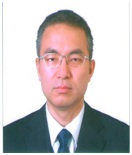 YAO Yudong, Director General, Research Institute of Finance and Banking, People’s Bank of China YAO Yudong, Director General, Research Institute of Finance and Banking, People’s Bank of China
EDUCATION
- 1997-2001, University of Cambridge, UK
Ph.D. in Economics
- 1995-1997, University of Cambridge, UK
M.S. and Diploma in Economics
- 1992-1995, Tsinghua University, Beijing, China
M.S. in Economics with concentration in econometrics
- 1988-1992, Southeast University, Nanjing, China
B.S. in Mechanical Engineering
WORK EXPERIENCE
- Jan. 2015-Present, Research Institute of Finance and Banking, People’s Bank of China Director General,
- Jan. 2012-Dec. 2014, Department of Monetary Policy, People’s Bank of China Deputy Director General,
- Nov. 2009-Dec. 2011, Department of Monetary Policy II, People’s Bank of China Advisor (Deputy Director General Level)
- Oct. 2005-Nov. 2009, Department of Commerce and Bureau of Investment Promotion, Heilongjiang Province, China
Eddie Yue, Deputy Chief Executive, Hong Kong Monetary Authority
 Eddie Yue is Deputy Chief Executive of Hong Kong Monetary Authority, is responsible for reserves management and external affairs. Mr Yue began his career as an Administrative Officer in the Hong Kong Government in 1986. He joined the HKMA in 1993 as a Senior Manager, and was subsequently promoted to Division Head in 1994. He has worked in a number of divisions, including Monetary Management, External Relations, and Banking Development, and has served as Administrative Assistant to the Chief Executive of the HKMA. Mr Yue was appointed Executive Director in 2001 and to his present position in September 2007. Eddie Yue is Deputy Chief Executive of Hong Kong Monetary Authority, is responsible for reserves management and external affairs. Mr Yue began his career as an Administrative Officer in the Hong Kong Government in 1986. He joined the HKMA in 1993 as a Senior Manager, and was subsequently promoted to Division Head in 1994. He has worked in a number of divisions, including Monetary Management, External Relations, and Banking Development, and has served as Administrative Assistant to the Chief Executive of the HKMA. Mr Yue was appointed Executive Director in 2001 and to his present position in September 2007.
Mr Yue is educated in the Chinese University of Hong Kong and the Harvard Business School.
Anoop Singh, Managing Director and Head of Regulatory Affairs, JP Morgan
 Anoop Singh has been Managing Director and Head of Regulatory Affairs, Asia Pacific, for JP Morgan since February 2014. Anoop Singh has been Managing Director and Head of Regulatory Affairs, Asia Pacific, for JP Morgan since February 2014.
Before that, at the International Monetary Fund, he was Director of the Asia and Pacific Department (2008-13) and Director of the Western Hemisphere Department (2002-08).
Mr. Singh, an Indian national, holds graduate and post graduate degrees from the universities of Bombay, Cambridge, and the London School of Economics. His other appointments at the IMF have included: Director, Special Operations in the Office of the Managing Director; Senior Advisor, Policy Development and Review Department; and Assistant Director, European Department.
His additional work experience includes: Special Advisor to the Governor, Reserve Bank of India; Senior Economic Advisor to the Vice President, Asia Region, the World Bank; and Adjunct Professor at Georgetown University.
Louis Kuijs, Chief Economist, Greater China, RBS
 Louis Kuijs has worked over 20 years as international macroeconomist, the last 10 years on Asia, especially on China. Louis Kuijs has worked over 20 years as international macroeconomist, the last 10 years on Asia, especially on China.
Since August 2012 he is at the Royal Bank of Scotland, as Chief Economist, Greater China in Corporate and Institutional Banking, based in Hong Kong, where he is responsible for economic research on China, Korea, Hong Kong and Taiwan.
Earlier on in Hong Kong, Louis worked at the Fung Global Institute, as Project Director, on China and India, and at MF Global, as Chief Economist, Asia.
In 2004-11, he was at the World Bank in Beijing, where he coordinated the Bank’s macroeconomic analysis and policy work on China and led its well-regarded China Quarterly Update. Key projects included research and policy work on the financing of investment, rebalancing the pattern of growth and the long term growth outlook. Louis also led the WB’s mid term review of China’s 11th Five Year Plan.
In 1997-2004: Louis worked at the International Monetary Fund in Washington DC, doing macroeconomic policy work and research on a range of emerging markets and industrialized countries.
Before that he worked at Oxford Economics, a private sector macro forecasting group, the Economic Intelligence Unit, Hypo-Vereinsbank and the University of Amsterdam.
Louis has a Drs degree in Economics from the University of Amsterdam and an MSc in Economics from the London School of Economics.
Carlos Medeiros, Assistant Director, Monetary and Capital Markets Department, IMF
 Carlos Medeiros is Assistant Director in the Monetary and Capital Markets Department (MCM) of the International Monetary Fund (IMF). He heads the Technical Assistance Division that is responsible for managing and leading the delivery of technical assistance on financial and monetary sector issues worldwide. In this capacity, he is overseeing the implementation of a new strategy for the delivery of technical assistance that aims to support financial sector stability by promoting sound and efficient financial and monetary and exchange rate policy frameworks. He led the Financial Sector Assessment Program (FSAP) to Hong Kong, SAR. Prior to assuming his current position, he was an Advisor and Mission Chief to Argentina in the Western Hemisphere Department of the IMF; Division Chief of the Asia/Pacific and Western Hemisphere Division in MCM; Division Chief of the Western Hemisphere Regional Division in MCM; and Division Chief of the Capital Markets Financing Division of the International Capital Markets Department of the IMF. Carlos Medeiros is Assistant Director in the Monetary and Capital Markets Department (MCM) of the International Monetary Fund (IMF). He heads the Technical Assistance Division that is responsible for managing and leading the delivery of technical assistance on financial and monetary sector issues worldwide. In this capacity, he is overseeing the implementation of a new strategy for the delivery of technical assistance that aims to support financial sector stability by promoting sound and efficient financial and monetary and exchange rate policy frameworks. He led the Financial Sector Assessment Program (FSAP) to Hong Kong, SAR. Prior to assuming his current position, he was an Advisor and Mission Chief to Argentina in the Western Hemisphere Department of the IMF; Division Chief of the Asia/Pacific and Western Hemisphere Division in MCM; Division Chief of the Western Hemisphere Regional Division in MCM; and Division Chief of the Capital Markets Financing Division of the International Capital Markets Department of the IMF.
|
18:15-18:30 |
Closing Remarks
PAN Gongsheng, Deputy Governor, People’s Bank of China
|
18:30-20:00 |
Dinner Reception hosted by the IMF
Location: 2nd Floor, Ballroom I, Ritz Carlton Financial Street
|




 Dr. YI Gang, is the administrator of the State Administration of Foreign Exchange and a deputy governor of the People’s Bank of China.
Dr. YI Gang, is the administrator of the State Administration of Foreign Exchange and a deputy governor of the People’s Bank of China. Markus Rodlauer is Deputy Director of the IMF’s Asia and Pacific Department. He was head of the team that prepared the 2012 Article IV Consultation for the People’s Republic of China. His previous operational responsibilities include being Deputy Director in the Western Hemisphere Department, Assistant Director in the Asian Department, and IMF Representative to Poland and the Philippines. Dr. Rodlauer worked with the Ministry of Foreign Affair of Austria before joining the IMF. His academic training includes various degrees in economics and international relations and a Doctor of Law from the University of Innsbruck.
Markus Rodlauer is Deputy Director of the IMF’s Asia and Pacific Department. He was head of the team that prepared the 2012 Article IV Consultation for the People’s Republic of China. His previous operational responsibilities include being Deputy Director in the Western Hemisphere Department, Assistant Director in the Asian Department, and IMF Representative to Poland and the Philippines. Dr. Rodlauer worked with the Ministry of Foreign Affair of Austria before joining the IMF. His academic training includes various degrees in economics and international relations and a Doctor of Law from the University of Innsbruck. Alfred Schipke is the IMF Senior Resident Representative for China. Previously, he was a division chief in the Asia and Pacific Department, where he coordinated the work on fast growing low income countries in South-East Asia (Frontier Economies) and led missions to Vietnam. He was a division chief in the IMF’s Western Hemisphere Department in charge of the Latin Caribbean and Eastern Caribbean Currency Union (ECCU) divisions. Among others, he negotiated a high access Stand-by Arrangement, which included a debt restructuring and a debt-equity swap for one of the countries in the ECCU, as well as an $800 million precautionary Stand-By Arrangement for El Salvador. Also, he was the Regional Resident Representative for Central America, Panama, and the Dominican Republic and worked in the IMF European Department. He teaches international trade and finance at Harvard University, John F. Kennedy School of Government and has authored and edited a number of books and articles, including a recently published handbook on the ECCU. His research has focused on economic integration and the linkages between macroeconomics and finance.
Alfred Schipke is the IMF Senior Resident Representative for China. Previously, he was a division chief in the Asia and Pacific Department, where he coordinated the work on fast growing low income countries in South-East Asia (Frontier Economies) and led missions to Vietnam. He was a division chief in the IMF’s Western Hemisphere Department in charge of the Latin Caribbean and Eastern Caribbean Currency Union (ECCU) divisions. Among others, he negotiated a high access Stand-by Arrangement, which included a debt restructuring and a debt-equity swap for one of the countries in the ECCU, as well as an $800 million precautionary Stand-By Arrangement for El Salvador. Also, he was the Regional Resident Representative for Central America, Panama, and the Dominican Republic and worked in the IMF European Department. He teaches international trade and finance at Harvard University, John F. Kennedy School of Government and has authored and edited a number of books and articles, including a recently published handbook on the ECCU. His research has focused on economic integration and the linkages between macroeconomics and finance. Mr. Li joined the PBOC in 2004, working in the Legal and Regulation Department before joining the Monetary Policy Department II in 2009. Prior to joining the PBOC, Mr Li was a practicing attorney with the New York law firm of Davis Polk & Wardwell. Mr. Li holds a Ph.D. degree in economics from Stanford University and a J.D. magna cum laude from Harvard Law School. He is a member of the Chinese and New York Bar.
Mr. Li joined the PBOC in 2004, working in the Legal and Regulation Department before joining the Monetary Policy Department II in 2009. Prior to joining the PBOC, Mr Li was a practicing attorney with the New York law firm of Davis Polk & Wardwell. Mr. Li holds a Ph.D. degree in economics from Stanford University and a J.D. magna cum laude from Harvard Law School. He is a member of the Chinese and New York Bar. Eswar Prasad is the Tolani Senior Professor of Trade Policy at Cornell University. He is also a Senior Fellow at the Brookings Institution, where he holds the New Century Chair in International Economics, and a Research Associate at the National Bureau of Economic Research. He was previously chief of the Financial Studies Division in the International Monetary Fund's Research Department and, before that, was the head of the IMF's China Division
Eswar Prasad is the Tolani Senior Professor of Trade Policy at Cornell University. He is also a Senior Fellow at the Brookings Institution, where he holds the New Century Chair in International Economics, and a Research Associate at the National Bureau of Economic Research. He was previously chief of the Financial Studies Division in the International Monetary Fund's Research Department and, before that, was the head of the IMF's China Division Dr. HUANG Haizhou is a Managing Director and Member of the Executive Committee at the China International Capital Corporation (CICC). He joined CICC in 2007, and had served as Co-Head of Sales and Trading Department and Executive Chairman of Capital Market Committee; and Chief Strategist, Co-Head of Research Department and firm-wide Executive Chairman of Research Coordination Committee.
Dr. HUANG Haizhou is a Managing Director and Member of the Executive Committee at the China International Capital Corporation (CICC). He joined CICC in 2007, and had served as Co-Head of Sales and Trading Department and Executive Chairman of Capital Market Committee; and Chief Strategist, Co-Head of Research Department and firm-wide Executive Chairman of Research Coordination Committee.  MK Tang is senior China economist, based in Hong Kong, at Goldman Sachs. Before he joined the firm in 2012, he worked in the Hong Kong Monetary Authority research department as senior manager. And prior to that, MK was an economist at the IMF for six years, first in the research department and then at country desks covering several economies including the Euro area, UK and Mexico. He has a Ph.D. in economics from Harvard University, and BSc from the Hong Kong University of Science and Technology.
MK Tang is senior China economist, based in Hong Kong, at Goldman Sachs. Before he joined the firm in 2012, he worked in the Hong Kong Monetary Authority research department as senior manager. And prior to that, MK was an economist at the IMF for six years, first in the research department and then at country desks covering several economies including the Euro area, UK and Mexico. He has a Ph.D. in economics from Harvard University, and BSc from the Hong Kong University of Science and Technology. Steven Alan Barnett is a Division Chief in the Asia and Pacific Department of the International Monetary Fund (IMF). He has spent the better part of the last 10 years covering Asia, including serving as Assistant Director at the IMF Office for Asia and the Pacific in Tokyo, Resident Representative to China, and Resident Representative to Thailand. Prior to joining the IMF in 1997, he earned his PhD in economics from the University of Maryland. He has a Bachelor's degree in economics from Stanford University as well as a Master's degree in Russian and East European Studies, also from Stanford.
Steven Alan Barnett is a Division Chief in the Asia and Pacific Department of the International Monetary Fund (IMF). He has spent the better part of the last 10 years covering Asia, including serving as Assistant Director at the IMF Office for Asia and the Pacific in Tokyo, Resident Representative to China, and Resident Representative to Thailand. Prior to joining the IMF in 1997, he earned his PhD in economics from the University of Maryland. He has a Bachelor's degree in economics from Stanford University as well as a Master's degree in Russian and East European Studies, also from Stanford. Ms. Zhu Jun joined the People’s Bank of China in 1993 and has held a variety of positions since then. After working in the Governor’s Office, Ms. Zhu joined the International Department in 1997, first in the BIS Division and then in the Research Division. In 2006, she took the position of the Director of the Research Division, and the Deputy Director-General of the International Department in 2009. She was appointed as the Director-General of the International Department in 2015.
Ms. Zhu Jun joined the People’s Bank of China in 1993 and has held a variety of positions since then. After working in the Governor’s Office, Ms. Zhu joined the International Department in 1997, first in the BIS Division and then in the Research Division. In 2006, she took the position of the Director of the Research Division, and the Deputy Director-General of the International Department in 2009. She was appointed as the Director-General of the International Department in 2015. Philip Lowe is the Deputy Governor of the Reserve Bank of Australia, a position he has held since February 2012. He is also Deputy Chairman of the Reserve Bank Board, and is Chairman of the Reserve Bank's Risk Management Committee.
Philip Lowe is the Deputy Governor of the Reserve Bank of Australia, a position he has held since February 2012. He is also Deputy Chairman of the Reserve Bank Board, and is Chairman of the Reserve Bank's Risk Management Committee. Dongchul Cho is chief economist at the Korea Development Institute (KDI) and professor at the KDI School of Public Policy and Management. He is also serving as a member of National Economic Advisory Council to the President.
Dongchul Cho is chief economist at the Korea Development Institute (KDI) and professor at the KDI School of Public Policy and Management. He is also serving as a member of National Economic Advisory Council to the President. Tarisa Watanagase joined the Bank of Thailand in 1975 and was Governor between 2006 -2010. Her long career at the Bank included responsibilities in economic research, money market operation, payment systems, banking sector policy and supervision, and monetary policy. She also worked as an economist at the International Monetary Fund, Washington D.C. between 1978-1990 and an IMF-World Bank FSAP independent assessor in 2002.
Tarisa Watanagase joined the Bank of Thailand in 1975 and was Governor between 2006 -2010. Her long career at the Bank included responsibilities in economic research, money market operation, payment systems, banking sector policy and supervision, and monetary policy. She also worked as an economist at the International Monetary Fund, Washington D.C. between 1978-1990 and an IMF-World Bank FSAP independent assessor in 2002. Professor Lars E.O. Svensson is Resident Scholar at the Research Department, IMF, during 2015. He is Visiting Professor at the Stockholm School of Economics since May 2013. He was Deputy Governor of Sveriges Riksbank (the central bank of Sweden) during May 2007–May 2013, Professor of Economics at Princeton University during 2001-2009, and Professor of International Economics at the Institute for International Economic Studies, Stockholm University during 1984–2003. He received his Ph.D. in economics from Stockholm University.
Professor Lars E.O. Svensson is Resident Scholar at the Research Department, IMF, during 2015. He is Visiting Professor at the Stockholm School of Economics since May 2013. He was Deputy Governor of Sveriges Riksbank (the central bank of Sweden) during May 2007–May 2013, Professor of Economics at Princeton University during 2001-2009, and Professor of International Economics at the Institute for International Economic Studies, Stockholm University during 1984–2003. He received his Ph.D. in economics from Stockholm University. SUN Guofeng, Deputy Director General, Monetary Policy Department, the People’s Bank of China
SUN Guofeng, Deputy Director General, Monetary Policy Department, the People’s Bank of China Dr. MA Jun is Chief Economist at the People’s Bank of China (PBC)’s Research Bureau. Before joining the PBC in 2014, he worked for 13 years at Deutsche Bank, where he was Managing Director, Chief Economist for Greater China, and Head of China and Hong Kong Strategy. Prior to joining Deutsche Bank in 2000, he worked as public policy specialist, economist and senior economist at the International Monetary Fund and World Bank from 1992-2000. From 1988-1990, he was a research fellow at the Development Research Center of China's State Council.
Dr. MA Jun is Chief Economist at the People’s Bank of China (PBC)’s Research Bureau. Before joining the PBC in 2014, he worked for 13 years at Deutsche Bank, where he was Managing Director, Chief Economist for Greater China, and Head of China and Hong Kong Strategy. Prior to joining Deutsche Bank in 2000, he worked as public policy specialist, economist and senior economist at the International Monetary Fund and World Bank from 1992-2000. From 1988-1990, he was a research fellow at the Development Research Center of China's State Council.  Simon Gray is Lead Financial Sector Expert in the Monetary and Capital Markets Department. Prior to joining the IMF in 2007 he spent 27 years at the Bank of England. Over the past 15 years he has worked extensively with central banks around the world, specializing in the field of monetary operations, liquidity management and market development, and has published extensively on these topics. He participated in the FSAP missions for the USA (2010 and 2015), India, Malaysia, Canada and Moldova, investigating in particular systemic liquidity and financial sector safety net issues. He has also worked in the fields of banking supervision, and payment and settlement systems.
Simon Gray is Lead Financial Sector Expert in the Monetary and Capital Markets Department. Prior to joining the IMF in 2007 he spent 27 years at the Bank of England. Over the past 15 years he has worked extensively with central banks around the world, specializing in the field of monetary operations, liquidity management and market development, and has published extensively on these topics. He participated in the FSAP missions for the USA (2010 and 2015), India, Malaysia, Canada and Moldova, investigating in particular systemic liquidity and financial sector safety net issues. He has also worked in the fields of banking supervision, and payment and settlement systems. Andrew Levin is currently an adviser in the research department at the International Monetary Fund; as of July 2015 he will be a professor of economics at Dartmouth College. Dr. Levin received his Ph.D. in economics from Stanford University in 1989. He was a staff member at the U.S. Federal Reserve Board from 1992 to 2012, including two years serving as a special adviser to Chairman Bernanke and Vice Chair Yellen on monetary policy strategy and communications. Dr. Levin has also had extensive interactions with many other central banks: He served as a consultant to the European Central Bank’s inflation persistence network and to the Bank of Canada’s external review of research, he was a co-editor of the International Journal of Central Banking, he has been a visiting scholar at the Bank of Japan and the Dutch National Bank, and he has provided technical assistance to the national banks of Albania, Macedonia, and most recently, to the Bank of Ghana. Dr. Levin’s own research has been published in leading economic journals, including the American Economic Review, the Journal of the European Economic Association, the Journal of Monetary Economics, and the Journal of Econometrics.
Andrew Levin is currently an adviser in the research department at the International Monetary Fund; as of July 2015 he will be a professor of economics at Dartmouth College. Dr. Levin received his Ph.D. in economics from Stanford University in 1989. He was a staff member at the U.S. Federal Reserve Board from 1992 to 2012, including two years serving as a special adviser to Chairman Bernanke and Vice Chair Yellen on monetary policy strategy and communications. Dr. Levin has also had extensive interactions with many other central banks: He served as a consultant to the European Central Bank’s inflation persistence network and to the Bank of Canada’s external review of research, he was a co-editor of the International Journal of Central Banking, he has been a visiting scholar at the Bank of Japan and the Dutch National Bank, and he has provided technical assistance to the national banks of Albania, Macedonia, and most recently, to the Bank of Ghana. Dr. Levin’s own research has been published in leading economic journals, including the American Economic Review, the Journal of the European Economic Association, the Journal of Monetary Economics, and the Journal of Econometrics. Ting Lu is managing director and Head of Greater China Economics at BofA Merrill Lynch Global Research. He is based in Hong Kong.
Ting Lu is managing director and Head of Greater China Economics at BofA Merrill Lynch Global Research. He is based in Hong Kong.  Halim Alamsyah became the Deputy Governor of Bank Indonesia since June 2010. In his current role he is in charge of Financial System Stability issues. He also represents Bank Indonesia as the ex-officio Commissioner of the Indonesia Financial Supervisory Authority (IFSA) since the latter was established in 2012. Prior to the transfer of the banking supervisory function to the IFSA, Mr. Alamsyah was the Deputy Governor in charge of Banking Supervision and Financial System Stability.
Halim Alamsyah became the Deputy Governor of Bank Indonesia since June 2010. In his current role he is in charge of Financial System Stability issues. He also represents Bank Indonesia as the ex-officio Commissioner of the Indonesia Financial Supervisory Authority (IFSA) since the latter was established in 2012. Prior to the transfer of the banking supervisory function to the IFSA, Mr. Alamsyah was the Deputy Governor in charge of Banking Supervision and Financial System Stability. Margaret (Meg) McConnell is a Senior Vice President and Head of the Assessments Function in the Integrated Policy Analysis Group of the Federal Reserve Bank of New York. The Assessments Function identifies risks that could impact the Federal Reserve’s macroeconomic, macroprudential, and microprudential objectives, and considers policy options to mitigate those risks, including identification of near-term trade-offs across objectives. She was previously the Director of the Office of Financial Stability and Regulatory Policy (O-FSRP). Prior to the establishment of the O-FSRP in March 2011, Ms. McConnell served as the Deputy Chief of Staff for Policy in the Executive Office, a role she assumed in July 2007. Ms. McConnell joined the Federal Reserve Bank of New York as an economist in September 1996. She holds a B.S. from the University of Delaware and a Ph.D. in economics from The Ohio State University.
Margaret (Meg) McConnell is a Senior Vice President and Head of the Assessments Function in the Integrated Policy Analysis Group of the Federal Reserve Bank of New York. The Assessments Function identifies risks that could impact the Federal Reserve’s macroeconomic, macroprudential, and microprudential objectives, and considers policy options to mitigate those risks, including identification of near-term trade-offs across objectives. She was previously the Director of the Office of Financial Stability and Regulatory Policy (O-FSRP). Prior to the establishment of the O-FSRP in March 2011, Ms. McConnell served as the Deputy Chief of Staff for Policy in the Executive Office, a role she assumed in July 2007. Ms. McConnell joined the Federal Reserve Bank of New York as an economist in September 1996. She holds a B.S. from the University of Delaware and a Ph.D. in economics from The Ohio State University. Ratna Sahay is Deputy Director of the Monetary and Capital Markets Department at the International Monetary Fund (IMF). She is responsible for setting strategic priorities for the department, leading key policy papers and projects, and coordinating the work and resource management of the department. She has previously worked in the Research, Finance, Asian, European, Middle East, and Western Hemisphere Departments at the IMF, leading key analytical and policy projects as well as several missions to emerging market countries. She has also led regional surveillance projects and missions in the Middle East and Western Hemisphere Departments. She has served as Advisor to Stanley Fischer (First Deputy Managing Director) and Michael Mussa and Kenneth Rogoff (both Economic Counselors of the IMF). She has published widely in leading journals on financial market spillovers and financial crises, inflation, economic growth, fiscal policy and debt sustainability, and transition economies. She has taught at Delhi University, Columbia University and New York University and holds a Ph. D in Economics from New York University, New York.
Ratna Sahay is Deputy Director of the Monetary and Capital Markets Department at the International Monetary Fund (IMF). She is responsible for setting strategic priorities for the department, leading key policy papers and projects, and coordinating the work and resource management of the department. She has previously worked in the Research, Finance, Asian, European, Middle East, and Western Hemisphere Departments at the IMF, leading key analytical and policy projects as well as several missions to emerging market countries. She has also led regional surveillance projects and missions in the Middle East and Western Hemisphere Departments. She has served as Advisor to Stanley Fischer (First Deputy Managing Director) and Michael Mussa and Kenneth Rogoff (both Economic Counselors of the IMF). She has published widely in leading journals on financial market spillovers and financial crises, inflation, economic growth, fiscal policy and debt sustainability, and transition economies. She has taught at Delhi University, Columbia University and New York University and holds a Ph. D in Economics from New York University, New York.  HUANG Yiping is professor of economics and deputy dean at the National School of Development, Peking University. His research focuses mainly on macroeconomic policy, financial reform and international finance. He is the Rio Tinto Adjunct Professor in the Chinese Economy at the Australian National University, a member of the China Finance 40 Forum and a member of the Chinese Economists 50 Forum. He is also Editor of China Economic Journal and an Associate Editor of Asian Economic Policy Review. Previously, he was a policy analyst at the Research Center for Rural Development of the State Council, research fellow and senior lecturer of economics at the Australian National University, General Mills International Visiting Professor of Economics and Finance at the Columbia Business School, Managing Director and Chief Asia Economist for Citigroup, Chief Economist for Caixin Media Group, and Managing Director and Chief Economist for Emerging Asia for Barclays. He received his Bachelor of Agricultural Sciences (Agricultural Economics) from Zhejiang Agricultural University, Master of Economics from Renmin University of China and PhD in Economics from Australian National University.
HUANG Yiping is professor of economics and deputy dean at the National School of Development, Peking University. His research focuses mainly on macroeconomic policy, financial reform and international finance. He is the Rio Tinto Adjunct Professor in the Chinese Economy at the Australian National University, a member of the China Finance 40 Forum and a member of the Chinese Economists 50 Forum. He is also Editor of China Economic Journal and an Associate Editor of Asian Economic Policy Review. Previously, he was a policy analyst at the Research Center for Rural Development of the State Council, research fellow and senior lecturer of economics at the Australian National University, General Mills International Visiting Professor of Economics and Finance at the Columbia Business School, Managing Director and Chief Asia Economist for Citigroup, Chief Economist for Caixin Media Group, and Managing Director and Chief Economist for Emerging Asia for Barclays. He received his Bachelor of Agricultural Sciences (Agricultural Economics) from Zhejiang Agricultural University, Master of Economics from Renmin University of China and PhD in Economics from Australian National University. YAO Yudong, Director General, Research Institute of Finance and Banking, People’s Bank of China
YAO Yudong, Director General, Research Institute of Finance and Banking, People’s Bank of China Eddie Yue is Deputy Chief Executive of Hong Kong Monetary Authority, is responsible for reserves management and external affairs. Mr Yue began his career as an Administrative Officer in the Hong Kong Government in 1986. He joined the HKMA in 1993 as a Senior Manager, and was subsequently promoted to Division Head in 1994. He has worked in a number of divisions, including Monetary Management, External Relations, and Banking Development, and has served as Administrative Assistant to the Chief Executive of the HKMA. Mr Yue was appointed Executive Director in 2001 and to his present position in September 2007.
Eddie Yue is Deputy Chief Executive of Hong Kong Monetary Authority, is responsible for reserves management and external affairs. Mr Yue began his career as an Administrative Officer in the Hong Kong Government in 1986. He joined the HKMA in 1993 as a Senior Manager, and was subsequently promoted to Division Head in 1994. He has worked in a number of divisions, including Monetary Management, External Relations, and Banking Development, and has served as Administrative Assistant to the Chief Executive of the HKMA. Mr Yue was appointed Executive Director in 2001 and to his present position in September 2007. Anoop Singh has been Managing Director and Head of Regulatory Affairs, Asia Pacific, for JP Morgan since February 2014.
Anoop Singh has been Managing Director and Head of Regulatory Affairs, Asia Pacific, for JP Morgan since February 2014. Louis Kuijs has worked over 20 years as international macroeconomist, the last 10 years on Asia, especially on China.
Louis Kuijs has worked over 20 years as international macroeconomist, the last 10 years on Asia, especially on China. Carlos Medeiros is Assistant Director in the Monetary and Capital Markets Department (MCM) of the International Monetary Fund (IMF). He heads the Technical Assistance Division that is responsible for managing and leading the delivery of technical assistance on financial and monetary sector issues worldwide. In this capacity, he is overseeing the implementation of a new strategy for the delivery of technical assistance that aims to support financial sector stability by promoting sound and efficient financial and monetary and exchange rate policy frameworks. He led the Financial Sector Assessment Program (FSAP) to Hong Kong, SAR. Prior to assuming his current position, he was an Advisor and Mission Chief to Argentina in the Western Hemisphere Department of the IMF; Division Chief of the Asia/Pacific and Western Hemisphere Division in MCM; Division Chief of the Western Hemisphere Regional Division in MCM; and Division Chief of the Capital Markets Financing Division of the International Capital Markets Department of the IMF.
Carlos Medeiros is Assistant Director in the Monetary and Capital Markets Department (MCM) of the International Monetary Fund (IMF). He heads the Technical Assistance Division that is responsible for managing and leading the delivery of technical assistance on financial and monetary sector issues worldwide. In this capacity, he is overseeing the implementation of a new strategy for the delivery of technical assistance that aims to support financial sector stability by promoting sound and efficient financial and monetary and exchange rate policy frameworks. He led the Financial Sector Assessment Program (FSAP) to Hong Kong, SAR. Prior to assuming his current position, he was an Advisor and Mission Chief to Argentina in the Western Hemisphere Department of the IMF; Division Chief of the Asia/Pacific and Western Hemisphere Division in MCM; Division Chief of the Western Hemisphere Regional Division in MCM; and Division Chief of the Capital Markets Financing Division of the International Capital Markets Department of the IMF.